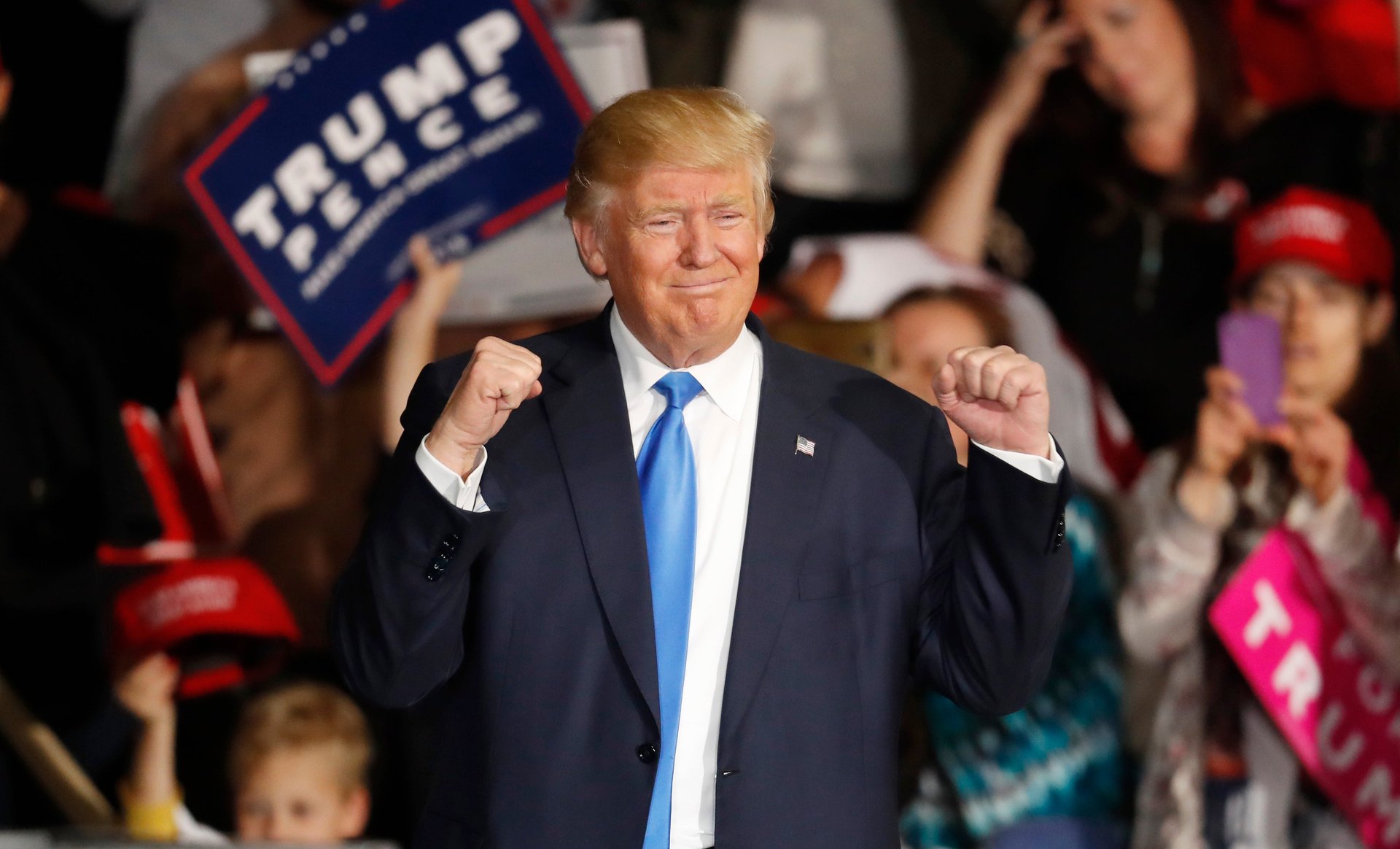The African voters in the US who want Donald Trump as their president
In less than 48 hours, Americans will go to the polls to elect a new president. But no matter what happens on election day (Nov. 8), Trump will not win the majority of the black vote. Many of these voters are expected to heed the message of president Barack Obama, who has warned that the Republican candidate will undo his administration’s legacy. But Trump’s message—to make America great again—might still draw an unlikely group of supporters from within the black community: African immigrants.


In less than 48 hours, Americans will go to the polls to elect a new president. But no matter what happens on election day (Nov. 8), Trump will not win the majority of the black vote. Many of these voters are expected to heed the message of president Barack Obama, who has warned that the Republican candidate will undo his administration’s legacy. But Trump’s message—to make America great again—might still draw an unlikely group of supporters from within the black community: African immigrants.
Africans make up a small share of the US immigrant population, but their numbers have been doubling every decade since 1970. The number of African immigrants living in the US grew from 80,000 in 1970 to 1.8 million as of 2013, according to a study from the Pew Research Center.
Those who support Trump tend to do so because of a blend of ideals that his candidacy represents: as the new flag bearer for conservative, traditional politics; a political outsider who has chipped away at political correctness; a successful businessman who has consistently reinvented himself to achieve the American dream; and a man they feel is sure to deliver them from what they see as the disappointing presidency of Obama.
Despite Trump’s anti-immigrant rhetoric, some African immigrants have been dissatisfied with Obama’s middling Africa policy and think real change from an outsider, as they perhaps see themselves, could make a positive difference for their own fortunes in America.
Leading this pack is none other than president Obama’s Kenyan half-brother, Malik. The 58-year-old naturalized US citizen has spoken about his own brother’s leadership as a “deep disappointment,” and said that Trump was “providing something new and something fresh” to the American people.
Some of Trump’s African supporters have, like Malik Obama, voiced concerns about the moral relativism that has pervaded US politics, from abortion rights to marriage equality, to the current debate on transgender bathroom use.
Reno Omokri, once the controversial new media aide to Nigeria’s former president, Goodluck Jonathan, is now a pastor in the San Francisco Bay area. Speaking to the BBC, Omokri said that he supports Trump because he would nominate a US Supreme Court judge who might reverse or otherwise deal with these issues from a conservative standpoint.
“Those issues, they might seem small to you,” Omokri said, but they “are very important to someone like me because I am a conservative and that is why I am supporting Donald Trump.”
Khadra Abdirahman is a 24-year-old Somali-American who was born in New York after her parents fled the civil war in Somalia. As a registered Republican and a first-time voter, she intends to cast her ballot for a political candidate who is against the status quo. Establishment party leaders, she said, are oblivious to the populism born out of frustration, which is why she says she would vote for a candidate like Trump or Bernie Sanders, instead of Hillary Clinton or Jeb Bush.
Abdirahman, who didn’t support Obama when he ran in 2008 and 2012, thinks the 2016 elections are “a change election” and a “revolutionary” one. She says the “surge of anti-establishment, anti-globalist political revolutions,” like what was seen in the UK with the vote for Brexit, should pave the way for a candidate like Trump to be elected.
“America projects a false image of goodness and truthfulness and it is actually extremely rotten to the core.”